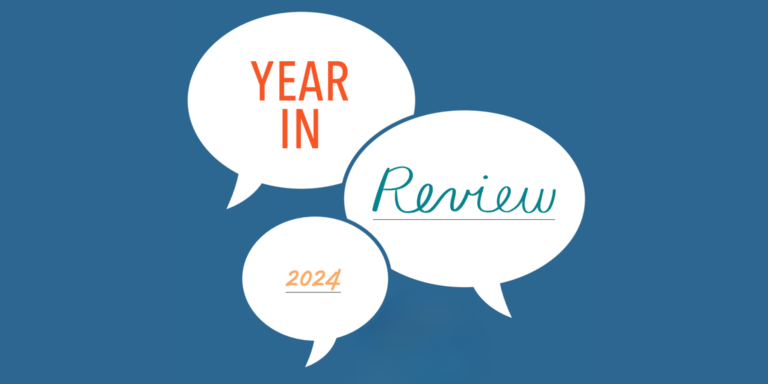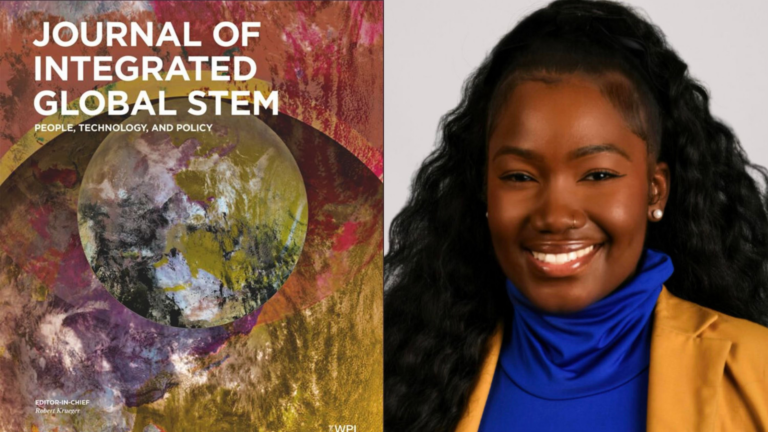In our work to prepare the next generation for rapid digital transformation, SFE spends a lot of time considering what it means to be empowered to make impactful, well-informed decisions about careers. We think about factors ranging from self-empowerment, to skills acquisition, to (perhaps most significantly) what the future of work looks like.
To help us accelerate our thinking in our Career Readiness interest area, and to more closely examine the context in which we curate our portfolio, we’ve engaged two Senior Advisors to help us determine how we can be more focused and strategic in our work to make the biggest impact for the most people.
Adrian Pelliccia, SFE’s Director of Strategic Initiatives, sat down with both advisors to talk about their plans for their work with SFE, and what kinds of work we can look forward to pursuing together in the coming months.
Stacy Holland was until recently the Executive Director of the Lenfest Foundation in Philadelphia. She’s dedicated her career to making sure that Philadelphia youth have access to meaningful academic and career readiness opportunities that will help them make empowered decisions about their place in the workforce. She previously served as the Chief of Strategic Partnerships for the School District of Philadelphia, and has worked in partnership with a number of Philadelphia organizations dedicated to preparing students for the global economy..
Anne Stanton has more than 20 years of experience developing programs that encourage equitable outcomes for low-income youth and communities. She served as Program Director for Youth at the James Irvine Foundation, where she devised and implemented Linked Learning, a $500 million program that connects young people with career opportunities through education.
SFE: What questions are you currently pondering and looking for answers to, and what questions are you bringing to this work?
Stacy: I’m thinking about how we define an intermediate solution and a long term solution for preparing young people for the current economy and the future economy. What do those solutions look like on the ground, and how do we help build the capacity of adults who are working with young people to make the transition with them?
I’m also curious about how we can use philanthropy as a catalyst for those conversations, and how we can build solutions that will manifest a new kind of normal in educating young people with the goal of preparing them for the economy
Anne: One of the things I think we all understand more and more every day is how rapidly change is happening. The really important questions for us to consider are “What do we know?” and “What don’t we know?” How can we create a philanthropic response in those very distinct areas? We need to identify where there is great work going on, what the practices are, and understand the policies that support those efforts. I’m asking “Who are the voices that we need to support?”
There’s a whole lot of work we’re excited to do with the team here, much of it to do with answering bigger questions we don’t have the answers for yet: “What is the future of work? How does it impact education? What is the workforce going to look like?” I think the question that animates all of us is “How do we equip more and more young people to self-determine their own pathways?”
The great news is there’s a history of great work in the career pathway movement, which has equipped so many young people to navigate successful futures. There’s a lot that we’ve learned there is much that we do know and that we can lift up, and there’s also a world of questions that we are all facing together about how we respond in a world where the future is so uncertain.
SFE: SFE’s values state that we’re humble, open, and trust our grantees to engage in work that will help them act as stewards of our larger shared mission. But as we begin to adopt a more policy-oriented approach to our work in Career Readiness, how do you think we can balance humility with an assertive agenda that promotes effective change?
Anne: I would answer that by saying you can stand on a soapbox and scream as loud as you want to about the issues that SFE cares about and wants to change, and still be very humble. It’s about understanding where the expertise and the answers all lie. It’s about asking the right questions in order to draw out the right expertise from a broad range of stakeholders — including young people, educators, industry leaders, policy makers, researchers — because these are complex issues.
Perspectives from around the country are really important inputs, and will help us shine a spotlight on the issues that we care about, inequities we see, problems we want to solve. Shining a light on the people and communities creating solutions will help drive progress.
I don’t have any sense that SFE is seeking to be an ivory tower, or act as the holders of information or solutions. But I think we all have curious minds and diverse perspectives, and we’re seeking additional perspectives around really important issues. I think that’s the right balance.
Stacy: Curiosity is at the core of humility. [Everyone at SFE is] curious, and you’re curious and tenacious about your interest areas. You have embraced the privilege of creating space for people to explore solutions around your three focus areas, which is a gift..
Anne: And question norms, too.
Stacy: Absolutely. That does not make you arrogant — it makes you people who are committed to seeing movement and progress happen. The key is how you do it, and whether you’re respectful, inclusive, curious. I always say “You can have a great fight — just wrap it up in a box and put a bow on it.” You can push the envelope, but you can do it from a place of humanity, curiosity, and genuine interest in and respect for others. To me, being humble doesn’t mean that you disagree or minimize your own perspective.
SFE: What types of partnerships do you see as being especially important as SFE takes on work at both the national and regional levels?
Anne: Conflating regional and national solutions is a path I’d be cautionary about. Ultimately, to be successful, but to also be relevant, requires us to recognize the distinct context in which you are working and convene conversations that deepen understanding. What is the drumbeat around the issues? Whose are the voices that you need to capture? How might you weave them together to create a singular voice around issues and potential solutions? I think we need to look at what we’re trying to do, and amplify impact by seeking collective action..
Whether you’re talking about a geographic level that’s a metro region, a city, state, or national agenda, there are elements of each that have a multiplier effect. But in each instance, they require a wide cross section of participants.
Stacy: I don’t think you can do this work authentically without involving youth, and their families. There’s a whole field of excellent information in those communities, and oftentimes people want to build at them, and not with or for them.
SFE: A big bullet point in your job descriptions refers to “strengthening” our portfolio in this interest area. What does “strengthening” mean to you, if anything at all?
Stacy: I think about it as “evolution,” and not necessarily as “strengthening.” The portfolio is evolving, and it will continue to evolve over time. I think as you, as an organization, begin targeting impact areas, you’ll see your investments get more intentional around those areas.
The first set of investment opportunities were exploratory — you were testing the waters to see what was out there, and the time you’re entering into now is one of clarity and one of evolution. We’re getting clear around this target of what meaningful impact will look like, and for whom.
Anne: You have to finish the evolution before you can start the revolution. “Strengthen” is a word I wouldn’t necessarily use, in that it’s non-commital. Our role is about creating impact. We’re asking how our work can ensure that we ponder questions that will draw on and help the work that SFE is doing to achieve the impacts that you seek. Ultimately, it’s all about the impact that you aspire to, for whom, and in what frame. Everything that we do should be in service of helping SFE achieve that impact.
From that vantage point, it’s a refinement — nurturing the ideas that you have, thinking about others that maybe haven’t been considered. It ultimately gets down to impact — what do we think success looks like, and how does our work help support your endgame of achieving that vision of success?
This interview has been edited and condensed.





